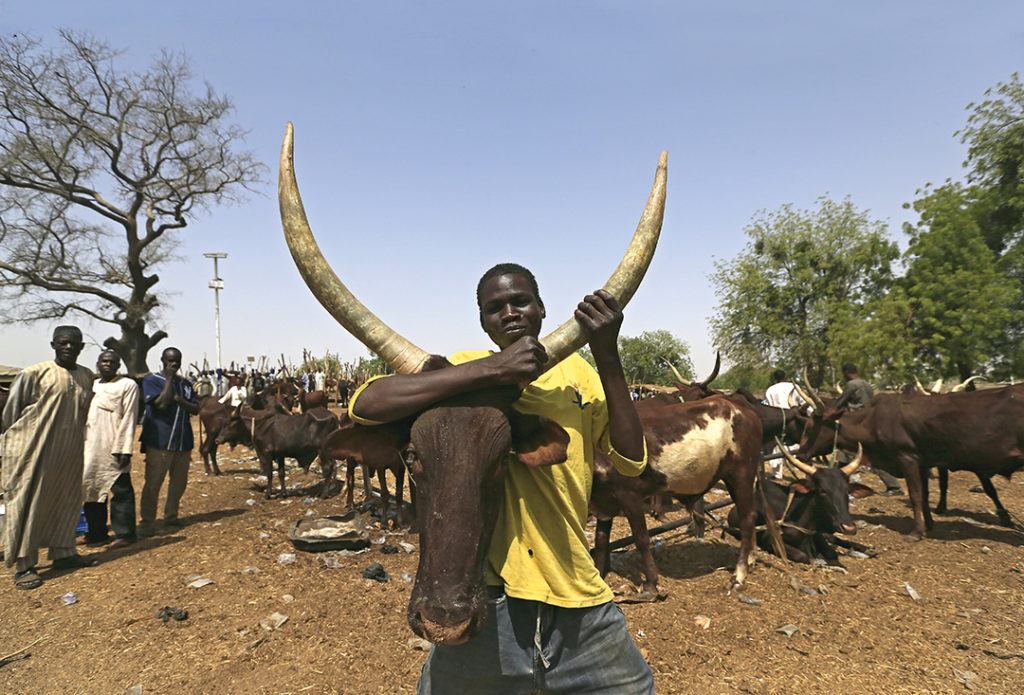Africa’s pastoralists and farmers are in conflict. Boko Haram sees an opportunity.
ADF STAFF
For generations, Fulani herdsmen have roamed North Africa, grazing their animals. In the 60 years of post-colonial Africa, life for the herdsmen, also known as pastoralists, has become harder, as they compete with farmers for fertile land, often resorting to violence. Since 2000, tens of thousands of people have died in pastoralist-related violence in Nigeria alone.
Now, extremists, including the terror group Boko Haram, are attacking the pastoralists and their cattle, all while encouraging them to rebel against the farmers and join the extremists’ causes.
The mostly Muslim Fulani are not the only herders the extremists have targeted. The reach of various extremist groups extends to the Sahel, the Lake Chad Basin and the Horn of Africa.
Experts say that most farmers and herdsmen coexist peacefully. When relations sour and turn violent, it’s usually due to local disputes that go unresolved, along with competition for increasingly scarce land and resources.
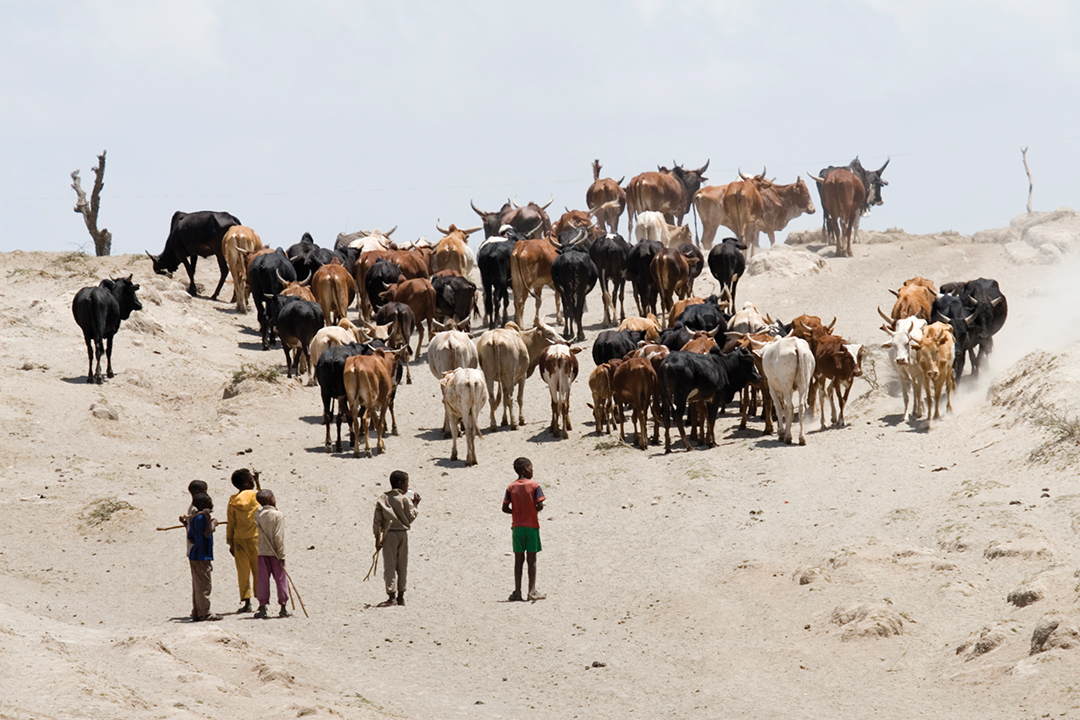
“Much of the conflict … between Christians and Muslims is about land and access to water,” said Vanda Felbab-Brown of the Brookings Institution. “But Boko Haram is tapping to those sentiments and inflaming those sentiments.”
The Fulani number between 20 million and 25 million, with significant populations in Burkina Faso, Cameroon, Guinea, Mali, Mauritania, Niger, Nigeria and Senegal. About a third of them are pastoralists, making them the largest such herding culture in the world. Their way of life requires mobility, with the herders roaming to meet the food, water and climate protection needs of their livestock.
Because of population growth, global warming and droughts, they are now forced to compete with farmers for fertile land. The desert is expanding, and Lake Chad is shrinking. Some governors in northern Nigeria have called for the intervention of the Economic Community of West African States to stop the incessant clashes between herdsmen and local farming communities in several states across Nigeria. The Premium Times of Nigeria reported in April 2017 that the country is trying to establish a 6,000-kilometer cattle route to keep herders from crossing farmland.
Because they seldom put down roots, Fulani herders have little political power. This makes them vulnerable to extremist recruitment. In May 2013, officials attending a conference in Chad concluded that if the herders had more government support, they might have formed an organized defense against extremists. The herders, they said, could have been encouraged to control and supervise regions of pasture that are not easily reached by national security forces.
“Increasingly, angry nomadic Fulanis feature prominently in the terrorist violence waged in West Africa,” wrote researcher Anouar Boukhars for World Politics Review. “This trend of disaffected nomadic herding communities joining violent extremist groups became evident as early as 2012.” That year, young nomadic herders in central Mali began asking extremists for military training and protection from roaming gangs that were stealing their herds.
The Fulanis’ complaints have merit. Laws throughout Africa give preferential treatment and land rights to settled residents, especially those who are native to a particular region. Even when governments establish groups and mechanisms to resolve land disputes fairly, they generally favor farmers, who already have well-defined territorial jurisdictions.
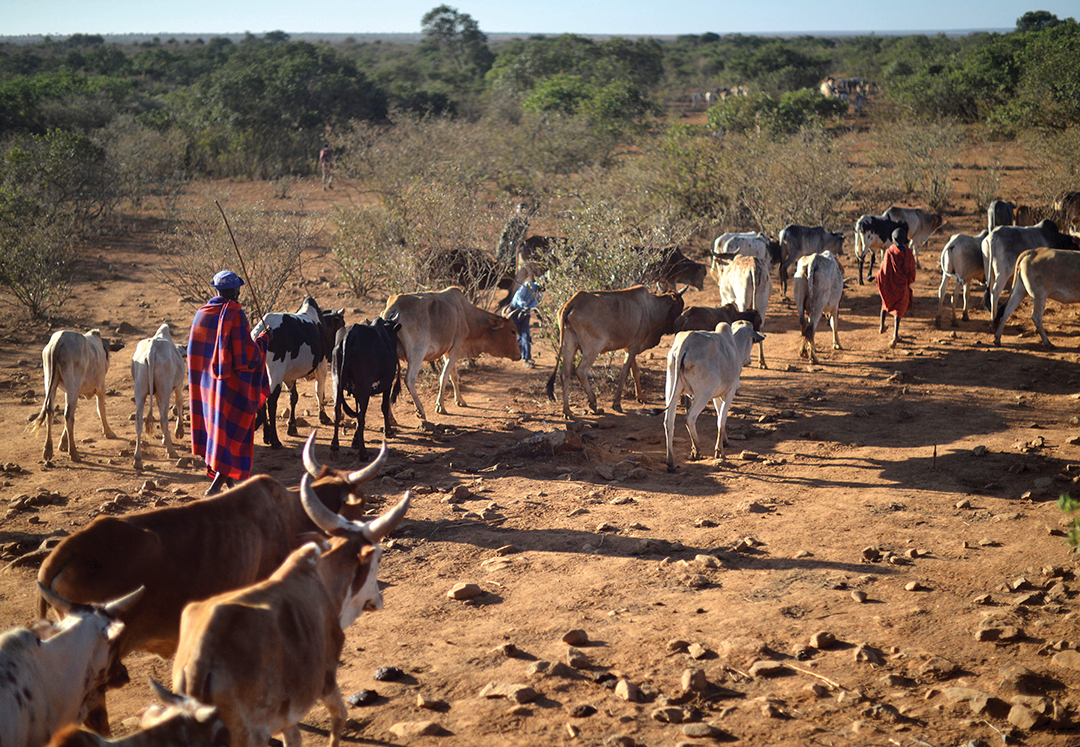
Herders have taken up arms against farmers, who have branded them as roving thieves. Farmers have also described them as extremists masquerading as pastoralists. But there remains uncertainty as to the extent that pastoralists are working with extremist groups.
“Violence has certainly claimed hundreds of pastoralist and settler lives this year alone, but precise information is scarce,” the international think tank Chatham House reported in May 2016. “It is still not clear whether this is a product of long-standing inter-community tensions, exacerbated by climate change and land-grabbing by politicians, simple banditry or overspill from the Boko Haram crisis — or a complex mix of all of these factors.”
RECRUITING IN MALI
In 2015, Malian extremists formed the Macina Liberation Front (Front de libération du Macina, or FLM), which has attacked civilians, United Nations peacekeepers, French troops, and Malian security forces in the central and southern parts of the country. The FLM is specifically trying to recruit Fulani nomadic herdsmen to its cause. A 2017 study by the Africa Center for Strategic Studies noted, “The FLM strategy is potentially extremely destabilizing because it risks fusing Islamist terrorism in the Sahel with pastoralist grievances and communitarian violence.” If the FLM is able to attract larger numbers of Fulani, it “would give terrorists traction among deep-seated societies that cover wide expanses of territory.”
“It would thus confer a new ferocity, persistence and reach upon terrorism in Africa,” the study reported.
The FLM is not the only extremist group operating in Mali. A March 2017 study by the U.S. State Department lists Mali as an example of the influence Muslim extremists can exert on pastoralists. The study noted that al-Qaida in the Islamic Maghreb (AQIM) “has successfully integrated itself into the Mopti and Segu-based Fulani community in Mali through the co-option of local grievances and astute network building.”
“AQIM has publicly claimed that they will continue to flex its Fulani network for the purposes of recruitment and expansion,” the study noted. It added that Mali’s extremists were putting the “downstream communities” of Burkina Faso and Côte d’Ivoire at risk as well.
Boukhars noted that AQIM is successful in part because it preys upon people who already feel disenfranchised.
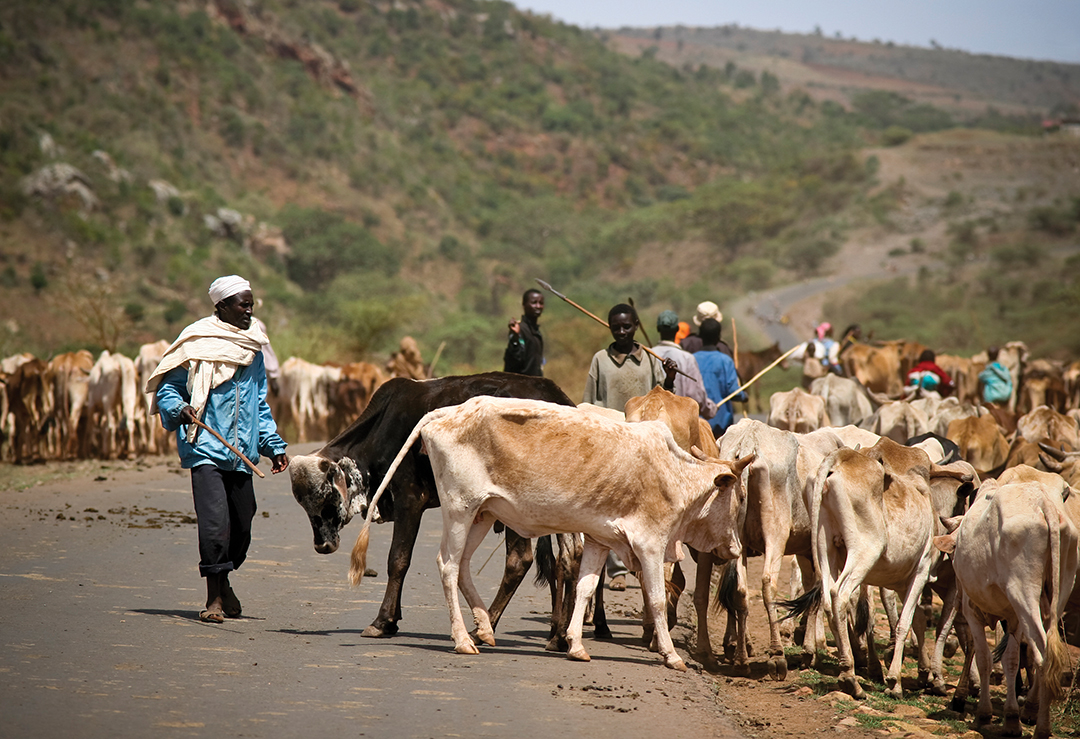
“The expansion and execution of successful terrorist attacks helps AQIM-led groups rebuild their resources and broaden their recruitment base, reaching areas riven by long-simmering communal distrust, festering local conflicts and distrust of state institutions, particularly in marginalized peripheries and rural communities,” Boukhars wrote. “The group ingrained itself into local settings riven by ethno-racial tensions as well as fierce competition over scarce resources, patiently building and expanding a network of family ties, social support, political relations and economic exchange.”
In many cases, extremist groups are robbing and slaughtering the Fulani and other herders, rather than trying to recruit them. In Nigeria, Boko Haram has been robbing, murdering and kidnapping villagers for many years. Since 2013, it also has targeted herders, killing them and taking their animals. A 2016 study by researchers at Ohio State University said: “It is likely that cattle are a major source of income for the group and not ivory, as has been suggested.” The study noted that attacks on pastoralists are largely unreported crimes, unlike attacks on villages.
Attacks on pastoralists are often on a large scale. In September 2016, the Nigerian Army arrested three suspected Boko Haram members at the Maiduguri cattle market. The three men were trying to sell 200 stolen cows. Nigerian officials had been forced earlier in the year to ban cattle sales in the market because so many Boko Haram fighters had become major cattle dealers. Officials ended the sales ban when legitimate cattle sellers pledged to identify bogus cattle dealers. One of the three men arrested told officials that he was “part of logistics elements of the Boko Haram terrorists group that assist in selling cows for the insurgents.”
To avoid extremist groups, particularly Boko Haram, pastoralists have moved to new countries or drastically changed their annual migration patterns, disrupting farmers’ lives in the process. In northeast Nigeria, herders have fled the country, seeking refuge in Cameroon. These refugees have suffered untold hardships in the process, and the massive influx of their animals has wreaked havoc on markets and the value of local livestock.
Some herders in the Sahel, fearful of Boko Haram, have abandoned their traditional dry-season grazing areas in Nigeria and moved to Ghana instead, where they are not welcome. Farmers there say the herders and their animals overwhelm the region’s resources.
“My country is carrying more burden,” Emmanuel T. Obeng, director of the Environmental Protection Agency of Ghana, told the Thomson Reuters Foundation. “As they come with their livestock, they burn the vegetation in Ghana to get fresh grass for their cattle. There have been many conflicts with our people over natural resources, including water and land.”
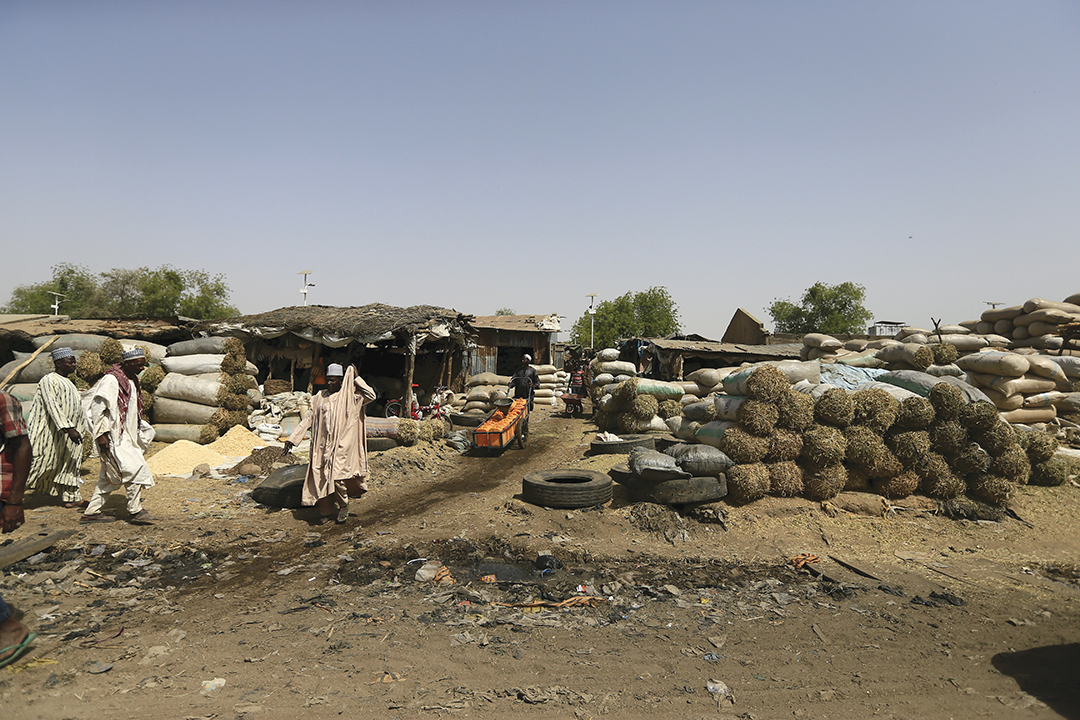
Some studies have concluded that the worst is still to come for pastoralists. A commissioned study conducted by the think tank Adelphi and released in April 2017 concluded that climate change is going to be a factor in recruitment by extremist groups.
“As climate change affects food security and the availability of water and land, affected people will become more vulnerable not only to negative climate impacts but also to recruitment by terrorist groups offering alternative livelihoods and economic incentives,” researcher Lukas Rüttinger wrote. “Terrorist groups are increasingly using natural resources, such as water, as a weapon of war, controlling access to it, and further compounding and exacerbating resource scarcities.”
NOT THE ENEMY
Pastoralists deserve protection from extremist groups, both for their survival as well as to prevent them from being recruited. To help the herders and to stabilize the regions they inhabit, the affected countries must make changes from within.
Researchers say that the lessons learned in the aftermath of Côte d’Ivoire’s decade of civil war can be applied to countries dealing with angry pastoralists. To improve life in these countries, these priorities have been recommended:
- Create jobs for disenfranchised young people.
- Encourage governments to design and implement disarmament, demobilization and reintegration processes among pastoralists and farmers in rural areas.
- Develop reconciliation plans for ethnic and religious groups.
- Better regulate land ownership and territorial administration. That includes honest and fair sharing of land and natural resources. Pastoralist leaders have called for grazing reserves to be set aside for their exclusive use.
- Improve the delivery of government-provided services to rural areas.
- Offer equitable political and geographic representation for all, including nomadic herders.
“Better water and land management strategies, increased economic opportunities and a more sensible approach to counterinsurgency could do much to prevent the alienation of already-vulnerable populations,” the think tank RUSI concluded in an April 2017 report.
The nongovernmental organization Conciliation Resources says that rural development, including education and employment opportunities, is a major component of any reconciliation plan. Countries must ensure that the diversification of livelihoods away from pastoralism is a viable option.
“This has important security implications as well, given the rise in young men turning to organized banditry and crime within pastoralist communities,” the organization reported in a 2017 study. “Rebuilding the system of nomadic education, and education generally in rural areas, is key.”

